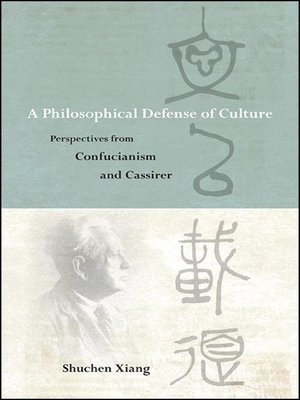A Philosophical Defense of Culture
ebook ∣ Perspectives from Confucianism and Cassirer · SUNY Series in Chinese Philosophy and Culture
By Shuchen Xiang

Sign up to save your library
With an OverDrive account, you can save your favorite libraries for at-a-glance information about availability. Find out more about OverDrive accounts.
Find this title in Libby, the library reading app by OverDrive.



Search for a digital library with this title
Title found at these libraries:
| Loading... |
In A Philosophical Defense of Culture, Shuchen Xiang draws on the Confucian philosophy of "culture" and Ernst Cassirer's philosophy of symbolic forms to argue for the importance of "culture" as a philosophic paradigm. A defining ideal of Confucian-Chinese civilization, culture (wen) spans everything from natural patterns and the individual units that make up Chinese writing to literature and other refining vocations of the human being. Wen is thus the soul of Confucian-Chinese philosophy. Similarly, as a philosopher who bridged the classical age of German humanism and postwar modernity, Cassirer implored his and future generations to think of humankind in terms of their culture and to think of the human being as a "symbolic animal." The philosophies of culture of these two traditions, very much compatible, are of urgent relevance to our contemporary epoch. Xiang describes the similarity of their projects by way of their conception of the human being, her relationship to nature, the relationship of human culture to nature, the importance of cultural pluralism, and the role of the arts in human life, as well as the metaphysical frameworks that gave rise to such conceptions. Combining textual exegesis in classical Chinese texts and an exposition of Cassirer's most important insights against the backdrop of post-Kantian philosophy, this book is philosophy written in a cosmopolitan mode, arguing for the contemporary philosophical relevance of "culture" by drawing on and bringing together two different but strikingly similar streams in our world tradition.






